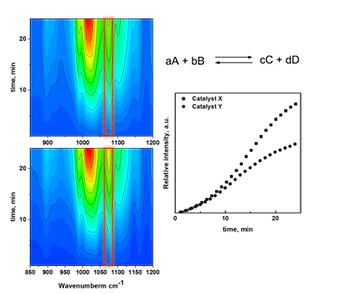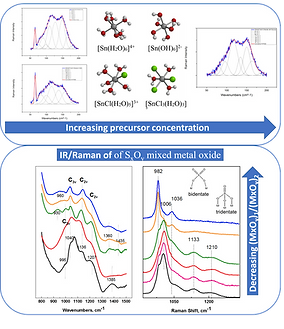Chemical Engineering Kinetics (155:341)
Fall 2015, Spring 2016, 2017, 2018, 2019, 2020
Fundamental theories of kinetics. Ideal reactor analysis; single reactions, parallel and series reactions. Consideration of real reactors and reactor design. Principles of heterogeneous catalysis, combined mass transfer/kinetic phenomena, and approaches to catalytic reactor design using computer methods.
Advanced Transport Phenomena (155:501)
Fall 2016, 2017, 2018, 2019
Momentum transport processes in laminar- and turbulent-flow systems. Development and application of steady and unsteady boundary-layer processes, including growth, similitude principles, and separation. Potential flow theory coupled with viscous dissipation at boundaries. Momentum transport in fixed- and fluid-bed exchangers and reactors. Prerequisite: Undergraduate transport phenomena.
South China University of Technology (SCUT) Student Summer Program at Rutgers
Summer 2017, 2018
Revolutionizing reaction engineering and catalysis through in-situ and Operando spectroscopy
Short course on coupling the basic principles of reactor design with molecular spectroscopic techniques in order to measure accurately the kinetics of complex reactions. Efforts were placed on developing an understanding on the changes occur on active sites.
Chemical Engineering Kinetics (155:341)
Fall 2015, Spring 2016, 2017, 2018, 2019, 2020
Fundamental theories of kinetics. Ideal reactor analysis; single reactions, parallel and series reactions. Consideration of real reactors and reactor design. Principles of heterogeneous catalysis, combined mass transfer/kinetic phenomena, and approaches to catalytic reactor design using computer methods.
Advanced Transport Phenomena (155:501)
Fall 2016, 2017, 2018, 2019
Momentum transport processes in laminar- and turbulent-flow systems. Development and application of steady and unsteady boundary-layer processes, including growth, similitude principles, and separation. Potential flow theory coupled with viscous dissipation at boundaries. Momentum transport in fixed- and fluid-bed exchangers and reactors. Prerequisite: Undergraduate transport phenomena.
South China University of Technology (SCUT) Student Summer Program at Rutgers
Summer 2017, 2018
Revolutionizing reaction engineering and catalysis through in-situ and Operando spectroscopy
Short course on coupling the basic principles of reactor design with molecular spectroscopic techniques in order to measure accurately the kinetics of complex reactions. Efforts were placed on developing an understanding on the changes occur on active sites.
Chemical Engineering Kinetics (155:341)
Fall 2015, Spring 2016, 2017, 2018, 2019, 2020
Fundamental theories of kinetics. Ideal reactor analysis; single reactions, parallel and series reactions. Consideration of real reactors and reactor design. Principles of heterogeneous catalysis, combined mass transfer/kinetic phenomena, and approaches to catalytic reactor design using computer methods.
Advanced Transport Phenomena (155:501)
Fall 2016, 2017, 2018, 2019
Momentum transport processes in laminar- and turbulent-flow systems. Development and application of steady and unsteady boundary-layer processes, including growth, similitude principles, and separation. Potential flow theory coupled with viscous dissipation at boundaries. Momentum transport in fixed- and fluid-bed exchangers and reactors. Prerequisite: Undergraduate transport phenomena.
South China University of Technology (SCUT) Student Summer Program at Rutgers
Summer 2017, 2018
Revolutionizing reaction engineering and catalysis through in-situ and Operando spectroscopy
Short course on coupling the basic principles of reactor design with molecular spectroscopic techniques in order to measure accurately the kinetics of complex reactions. Efforts were placed on developing an understanding on the changes occur on active sites.
Tsilomelekis Research Group
Material Synthesis | Heterogeneous Catalysis | Operando Molecular Spectroscopy
Tsilomelekis Research Group
Material Synthesis | Heterogeneous Catalysis | Operando Molecular Spectroscopy
Research
Structure-Reactivity Relationships in Biomass Processing
The necessity of creating the next generation fuels and chemicals from innovative renewable sources, like biomass, motivates this research project. We apply vibrational spectroscopic techniques to investigate the molecular structure of catalytic materials in solution. To achieve this goal, we design a spectroscopic optical cell reactor that will allow the generation of catalytic performance data similar to those achieved with conventional catalytic batch reactors. Emphasis is also placed on studying solvent effects in biomass processing by unraveling catalyst-solute-solvent interactions under operando reaction conditions.
We utilize Reaction Induced Difference Infrared Spectroscopy in order to In-Situ record changes in infrared absorption which are caused by a reaction. Conducting the experiments that way, we get information only from “active” species or functional groups, that is, those that are affected by the change from the initial to the final state. Additionally, Surface Enhanced Raman Spectroscopy (SERS) and Surface-Enhanced Infrared Absorption Spectroscopy (SEIRAS) are also utilized to create new approaches for specific compounds detection and quantification.


Shale Gas to Chemicals
This project aims at the design of new catalytic materials towards an efficient catalytic process for the manufacture of olefins from their respective hydrocarbons without producing syngas as an intermediate. The project enables the coupling of high-throughput experimentation with spectroscopic studies under operando conditions to deliver mechanistic insights and a rational approach toward reactor and catalyst design via molecular level thinking.
We apply a variety of spectroscopic techniques to characterize the molecular structure of catalytic materials under in-situ and operando conditions. Emphasis is placed on closing the loop between material synthesis and tailored catalytic properties by integrating vibrational spectroscopy into each individual synthesis steps.
We are specifically interested in:
i) solid super acid catalysts
ii) mixed metal oxides
iii) zeolites
iv) carbon based supported catalysts

